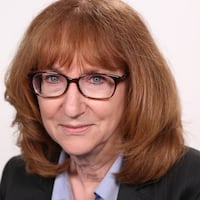At a North Georgia clinic, the sole physician would visit only one afternoon a week, rarely seeing patients or reviewing their charts. Yet, he routinely would sign stacks of prescriptions, including ones for opioids, according to federal prosecutors.
When the clinic’s CEO found out, the government alleges, she didn’t take prompt action to stop him.
Now, the clinic, North Georgia Healthcare Center in Ringgold, and CEO Delaine Hunter have agreed to pay $130,000 to settle a whistleblower lawsuit accusing them of violations involving the opioid prescriptions. The Department of Justice alleged they violated the False Claims Act by billing federal health care programs for medically unnecessary claims from January 2012 to September 2018.
In a separate settlement, the physician, Dr. Gary Smith, agreed to a voluntary 10-year exclusion from all federal health care programs, after being accused of improperly prescribing opioids without appropriate medical review and judgment of medical necessity.
The clinic is a nonprofit that provides services to patients regardless of their ability to pay, federal records show. A former employee filed the whistleblower case, which also accused the clinic of using uncredentialed and unqualified medical staff to evaluate patients and prescribe treatment plans.
Later, the federal government and the state of Georgia intervened in the case.
Only physician assistants, not Smith, saw most of the patients at the clinic, the governments alleged.
Under Georgia law, only physicians can write prescriptions for opioids and other Schedule II drugs. When a physician assistant concludes that a patient needs such drugs, the doctor supervising the physician assistant must concur that the drugs are medically necessary and must sign the prescription.
“Medical professionals are trusted to prescribe controlled substances in compliance with the law and in a manner that protects the health and safety of their patients,” said Acting U.S. Attorney Kurt R. Erskine in a prepared statement.
While the claims were resolved by the settlement, there was no determination of liability.
Georgia Composite Medical Board records show that Dr. Smith is still actively licensed to practice. He last updated his physician profile in 2019, when he noted that he was working part-time. Smith is also a licensed pharmacist, and state records show he is still actively licensed with no recent disciplinary actions.
About the Author
Keep Reading
The Latest
Featured


